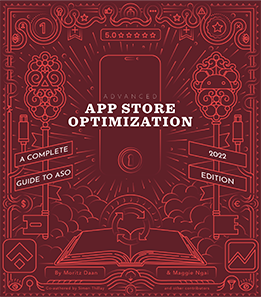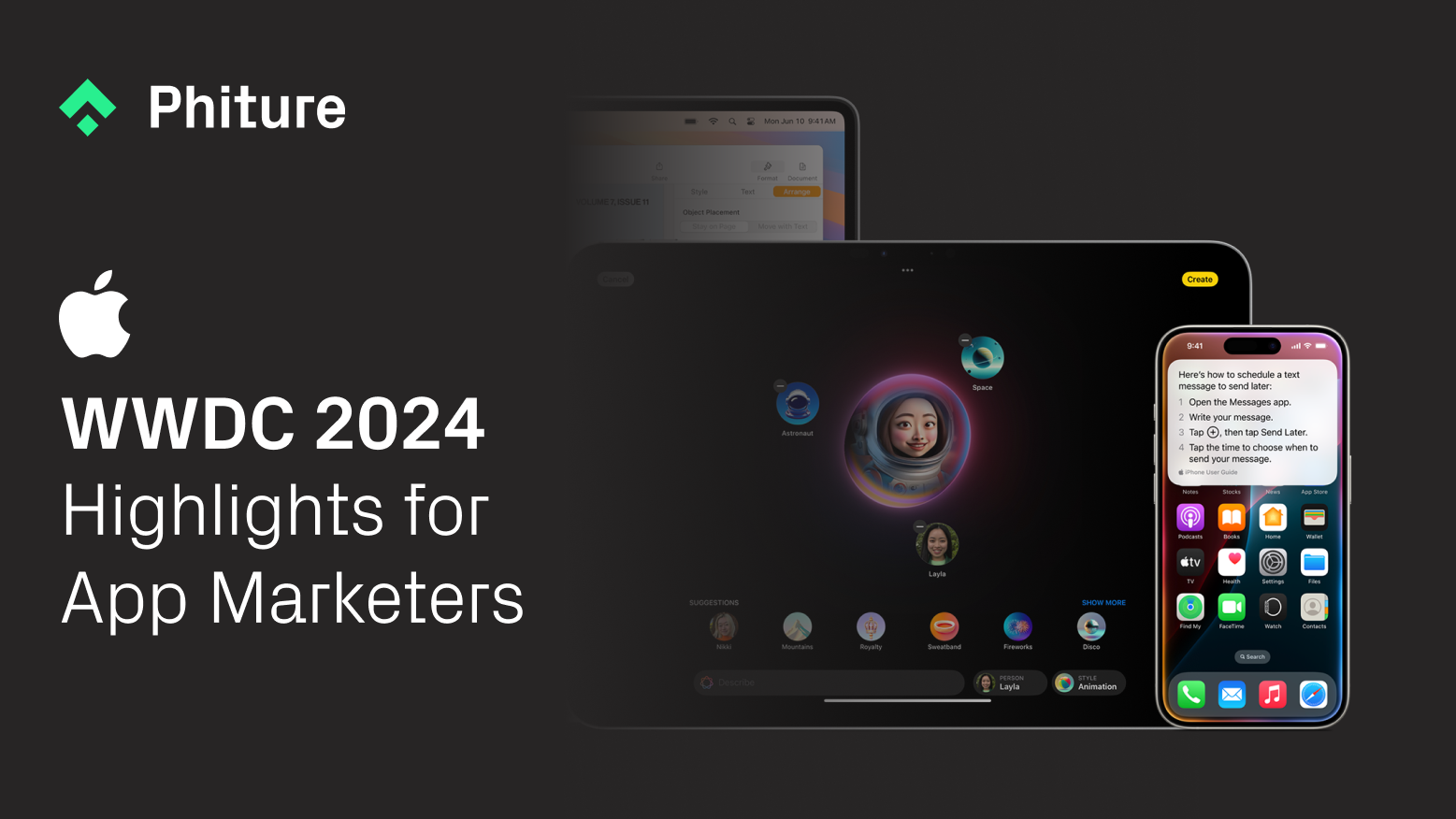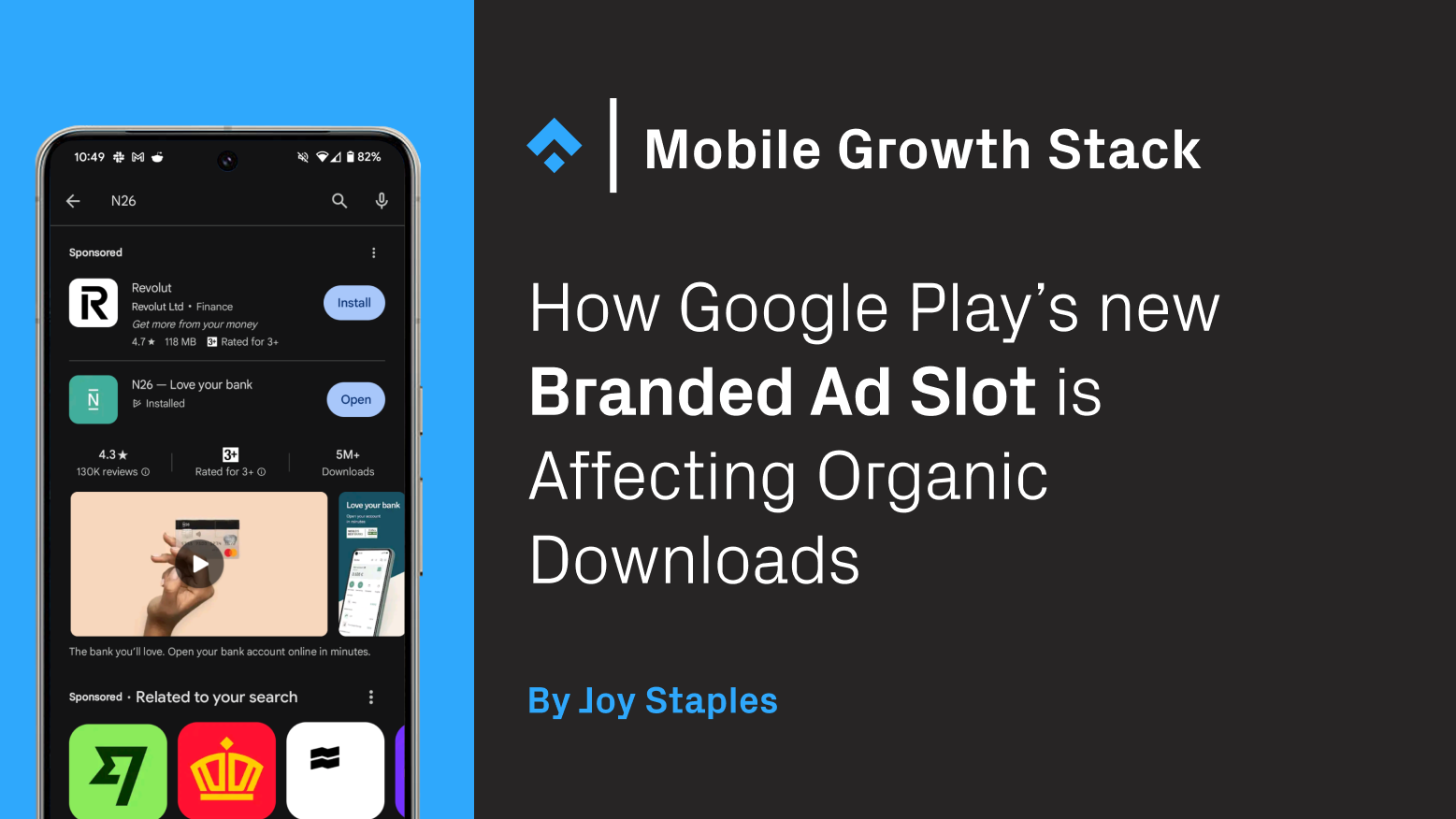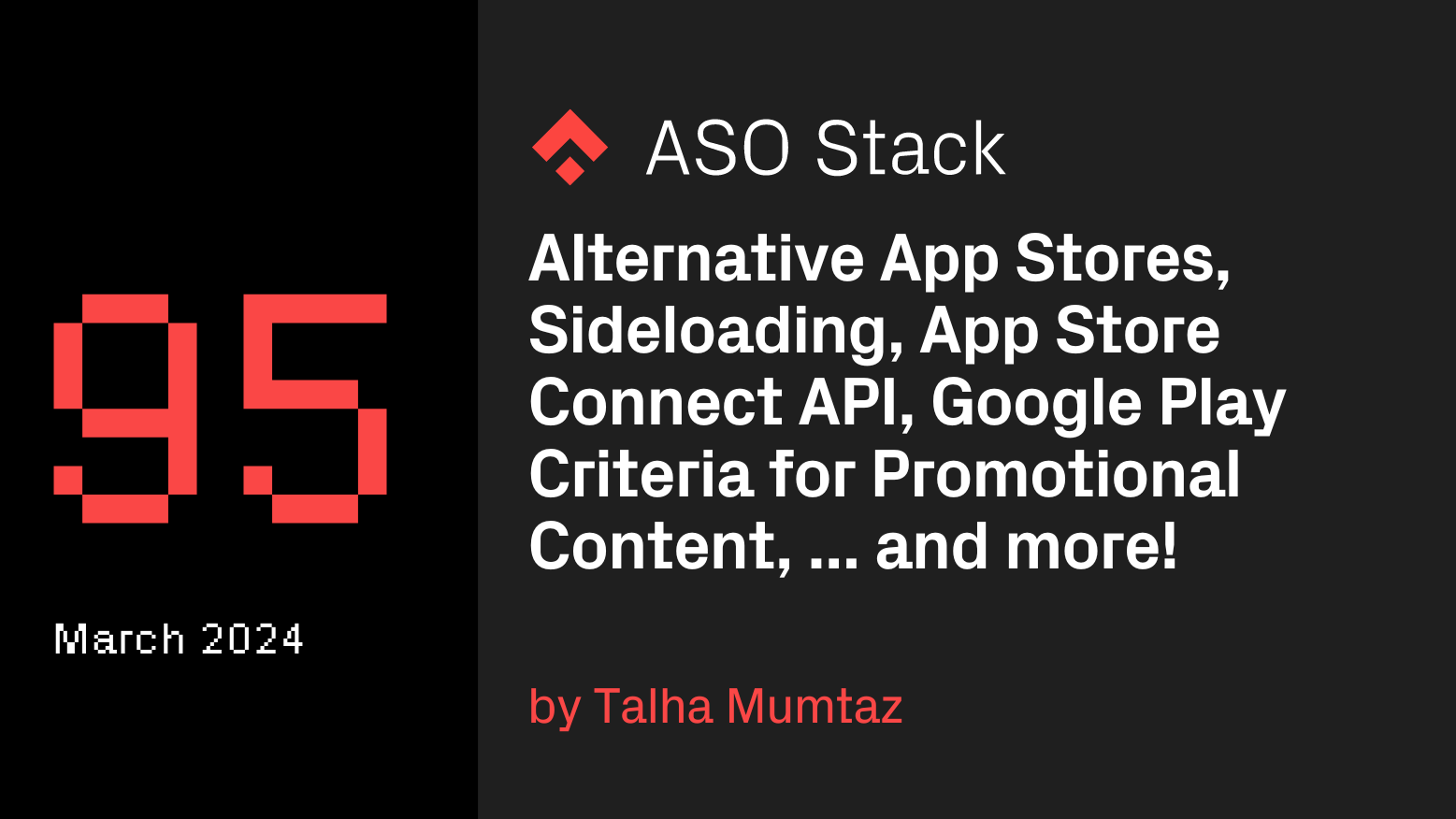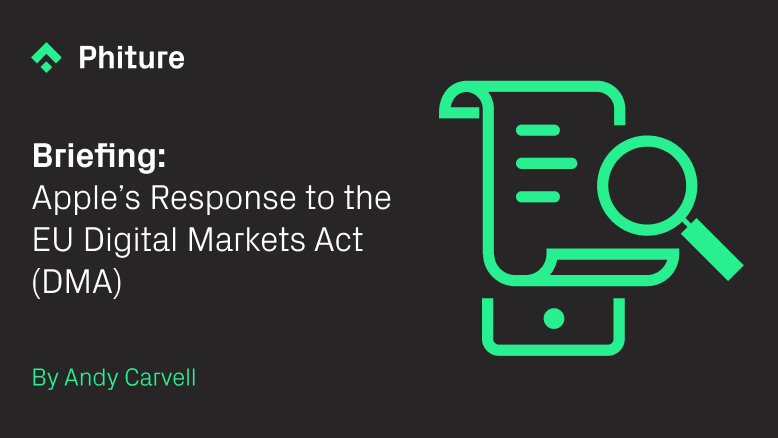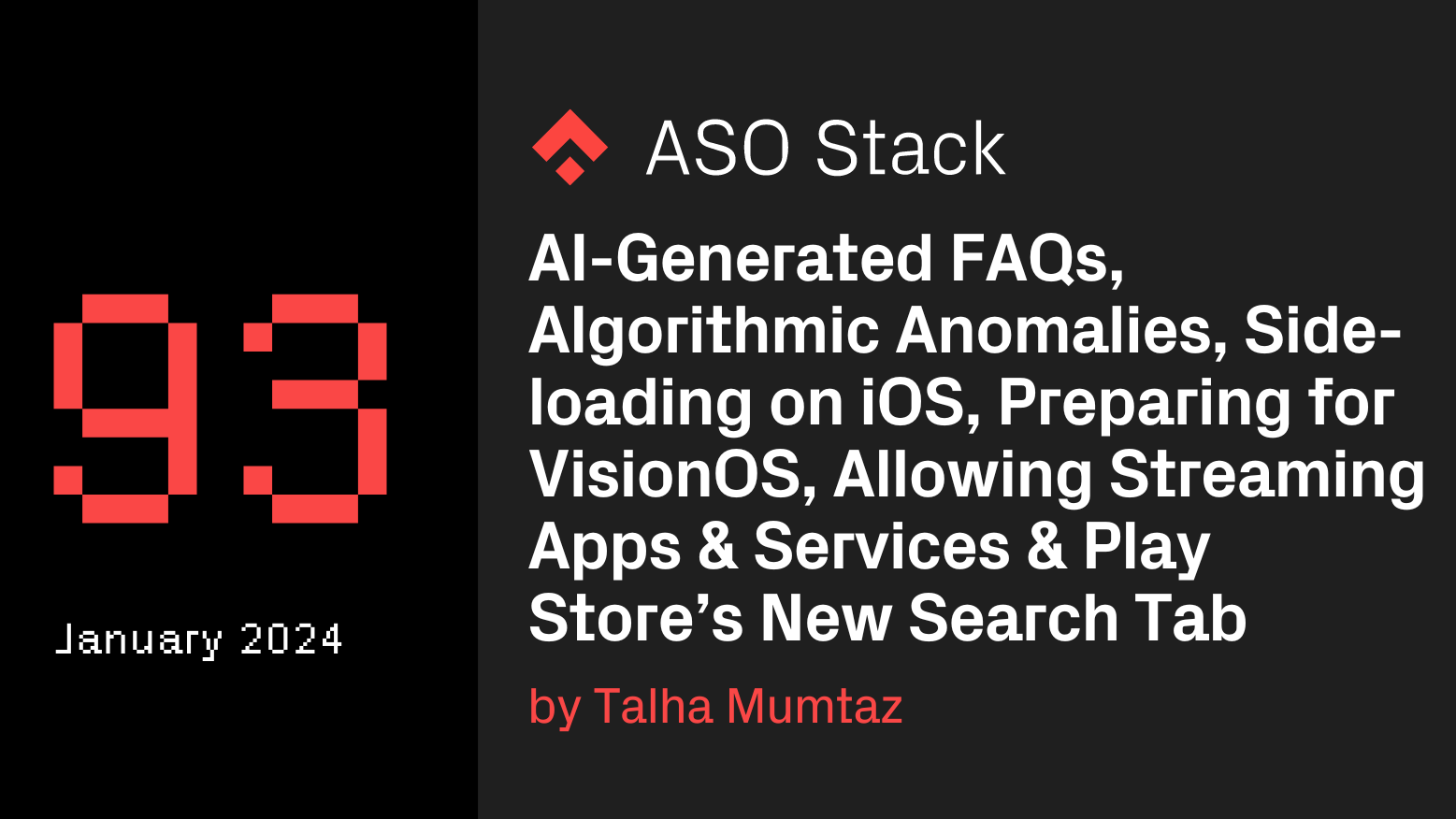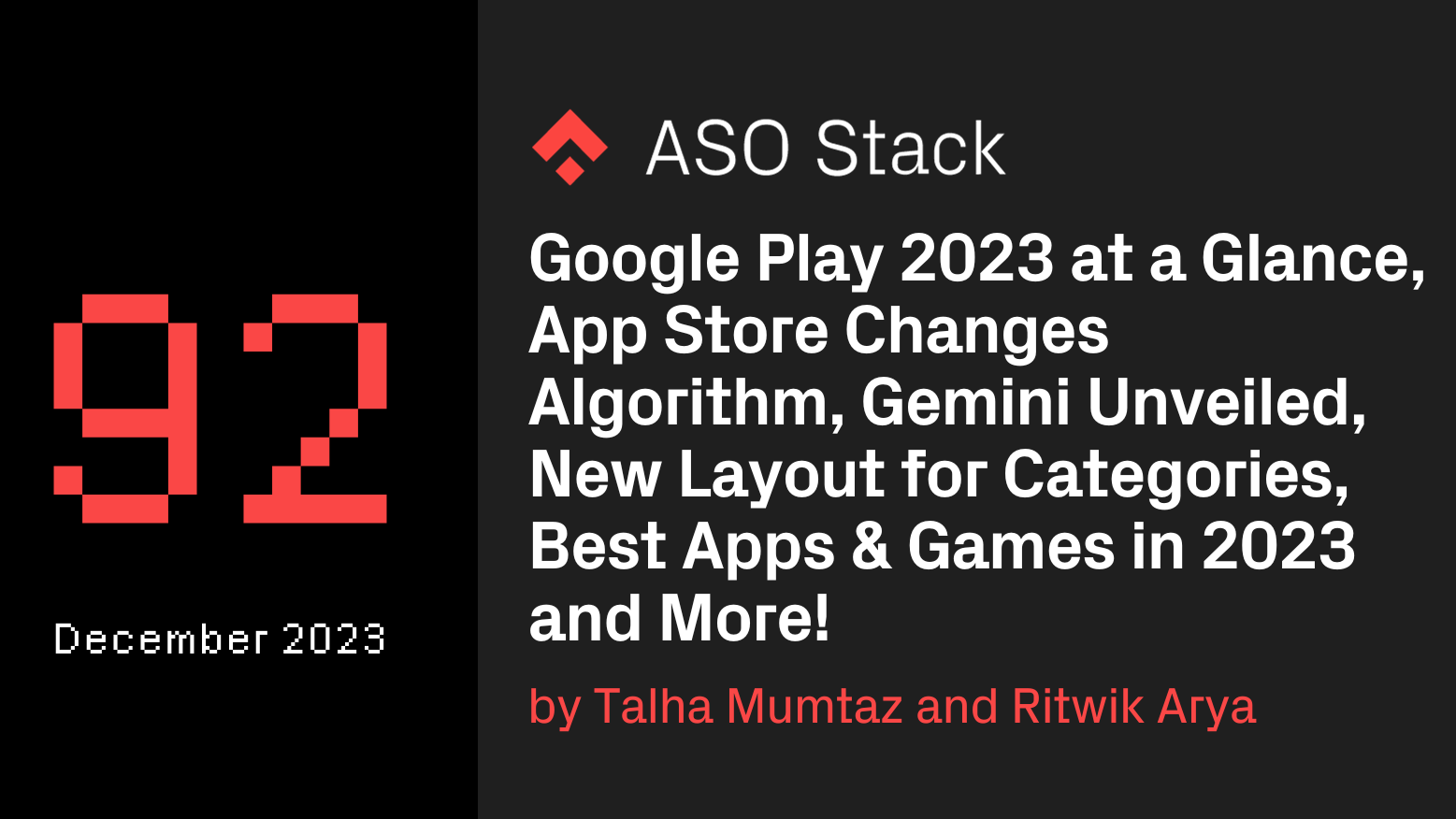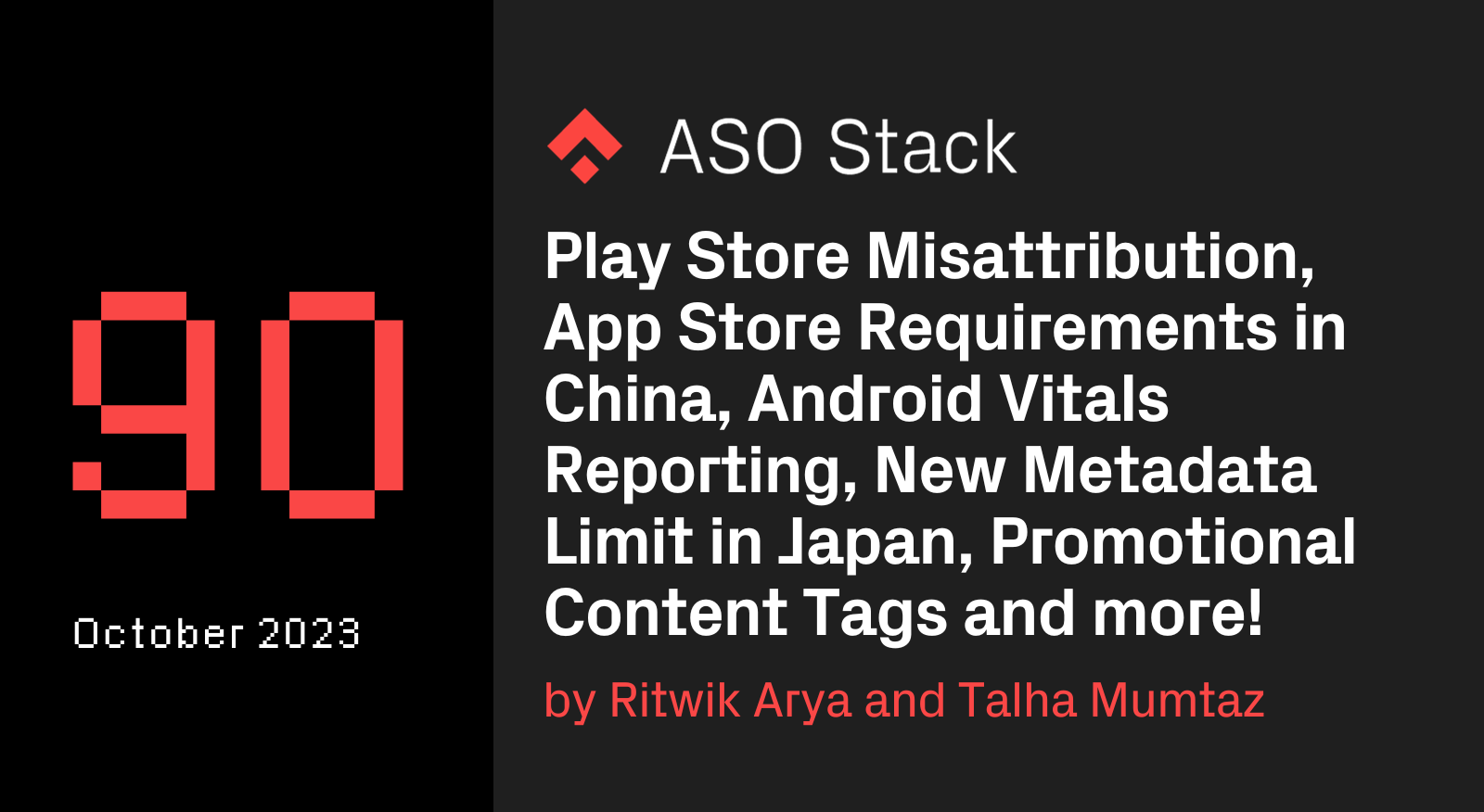
This month’s ASO Monthly edition outlines the most relevant October developments. Here, we shed light on trends in App Store Optimization, algorithm changes, insights into conversion rate optimization, and tool updates.
October 1 – Apple could revamp App Store search algorithm
Bloomberg reported that Apple is internally working on a next-gen search engine, codenamed ‘Pegasus.’ The technology aims at surfacing more accurate search results and could get integrated into the App Store as well. This move could have a significant impact on App Store Optimization (ASO) strategies, as the way people search for apps and discover apps might change. The update builds on Apple’s previous search advancements, evident in the Spotlight search bar, where users can complete a set of actions such as opening apps, downloading apps, changing iOS settings, and even searching the web.
October 9 – Traffic misattribution in the Play Store
Maxim and a few more members of the ASO Stack Slack community flagged a mix-up between Google Play traffic attribution. Many ASO practitioners complained about a sudden shift in Search and Exploration traffic sources. In some extreme cases, we could see a reverse trend between the two traffic sources. This has been particularly noticed since October 1. A similar situation occurred in February 203 when Google Play made traffic attribution updates. However, since this trend has occurred, Google has not clarified why this happened. It could be a reporting bug as well that Google may fix soon. ASO practitioners are recommended to keep an eye on their traffic attribution and not rely on numbers until they get stabilized.

October 9 – Apple now requires developers to submit an ICP filing number to publish apps in the Chinese App Store
Apple is making the App Store in China more restrictive following updated regulations from the Chinese Government. The Chinese government previously announced that an ICP (Internet Content Provider) will be required for apps to be listed in App Stores in China. Other App Stores in China like Huawei and Tencent have already complied and now Apple will also require the developers to submit an ICP filing number before the apps are published in the region. Following this requirement, publishers who don’t have their backend hosted in China won’t get a license, therefore their apps will not get listed in the App Store. Post this users also won’t be able to access their apps with a VPN.
October 16 – Play Console starts reporting ANRs and Crash rate data up to the last three years
Android Vitals play an important role in helping developers understand how well their game/app is holding in everyday life and on different devices. With the new update, developers can now measure their app’s Android Vitals up to the last three years and measure the performance. Having consistently bad Android Vitals can actually lower your app’s visibility on the store. To cope with this, it is recommended to keep a tight check on your app’s Vitals. By comparing the historical Vitals data, you can now analyze if your app’s performance has been improving or not over the passing years.
October 18th – Play Store’s Promotional Content tags now showing in the top charts in App information
Going forward, the presence of promotional content will begin to affect your explore conversion rate, regardless of whether such content is separately featured in the ‘Explore’ tab. Apps that occupy top chart positions, as well as those featured in Google Play Store collections, now display a ‘Promotional Content’ tag. This tag highlights sales, major updates, events, and the like, along with the end date of each event, thereby capturing immediate user attention.
To show the potential impact, consider this scenario: A user is browsing the top charts in the Shopping category. Among the 10 listed apps, one displays a ‘Sale Event’ tag (as shown in the picture below). This visual cue is likely to attract the user’s attention, possibly leading to converting more explore traffic for that specific app.
The exact date when these promotional tags were introduced is uncertain. However, it’s an important update to share with clients to emphasize the ongoing value of running continuous promotional events.

October 18th – Play Store updates the character limits for metadata in Japan
The Google Play Store has updated its policy on title character limitations. In the past, both half-width and full-width characters counted equally toward the character count. However, with the latest changes, full-width characters now take up twice the character space. This effectively halves the number of full-width characters you can use in your title, reducing it from 30 to 15. If you’ve been using full-width characters in your app titles, you’ll need to revise them using half-width characters to comply. Failing to consider keyword research and localization during this process could adversely affect your app’s ranking.
October 18 – Google Play Testing a Permanent Search Bar
As per Android Central, Google is testing a permanent search bar in the Play Store. Some users noticed that the search bar does not disappear while switching Play Store tabs or scrolling through the Explore tab. This indicates one of Google’s tactics to nudge more users towards searching for apps in the store. If this test gets rolled out to all users, ASO practitioners could see a potential impact on their app’s search visibility, as more users may start searching for apps.
October 24 – Google Play Indie Games Accelerator Program
Google Play is inviting submissions for its Indie Games Accelerator 2024 program, aimed at supporting emerging indie game developers. If you’re in the early stages of game development or have recently launched a game, this program might be worth checking out. Selected studios will participate in a 10-week program starting in March 2024. The program is open to small game developers from over 70 eligible countries and features online masterclasses, talks, and workshops led by industry experts. While learning various tactics from Google and industry thought leaders directly, chosen developers may learn effective tactics to improve their game’s reach in the Play Store.
Upcoming Events
App Promotion Summit Berlin | Onsite | November 2023
Tool Updates
Adjust: Scheduled Maintenance
AppTweak: Monitor App Performance (Downloads, Rank & More)
MobileAction: How to Leverage Google App Campaigns Intelligence: Use Cases
Interesting Reads/Listens/Watches
Apple Search Ads and App Store Optimization Complete Guide for 2023/2024 | AppFollow
How LiveWidgets can Increase Engagement for iOS 17 users | App Growth Network
Halloween Gaming Spectacular: Strategies for Mobile Game Developers | AppSamurai
Before You Go
With the holiday season around the corner, ASO practitioners should start building strategies to focus their marketing efforts towards seasonality and festivities. Some of those strategies could be to optimize your creatives (icon, screenshots) to reflect festivals, running timely special events within the app and store to match with your users’ festive mood, pitching your app to Apple Editors if you are planning on getting featured against a seasonal topic and even optimizing your textual metadata assets to convey a message that portrays festivities.
Using tools such as AppTweak, you can analyze the impact of seasonality on your category, keyword reach and competitors who always run seasonal events and campaigns. By taking these points into consideration, you can start planning your own seasonal marketing activities.
Table of Contents



